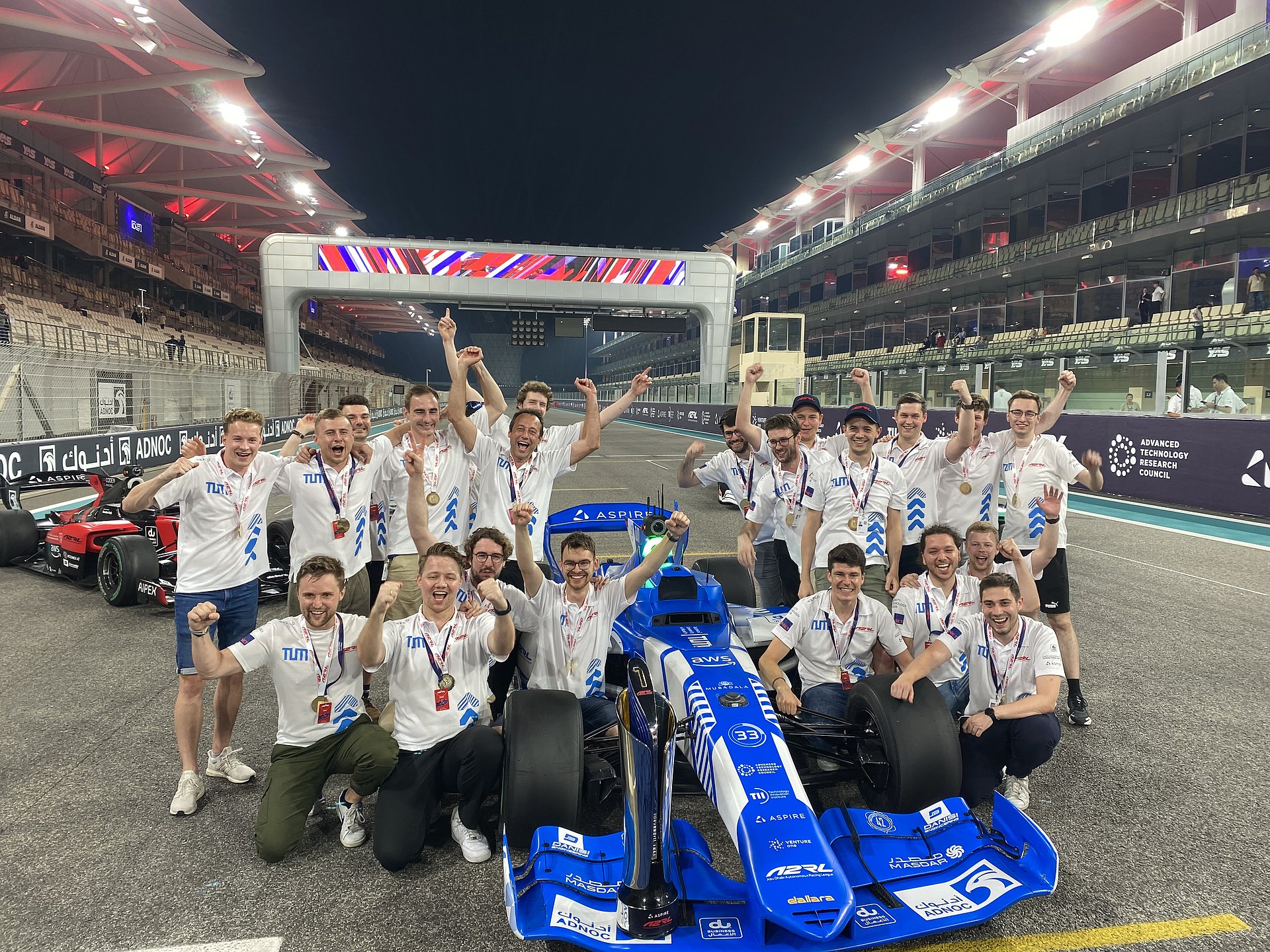The TUM vehicle controlled by artificial intelligence has achieved first place in an international race on the Formula 1 track in Abu Dhabi. Without a human driver or remote control, using only the superior autonomous software, the fully automated vehicle was able to prevail against seven other international teams with identical racing cars. It independently searched for the limits, mastered spectacular overtaking maneuvers and speeds of up to 250 km/h on the winding track.
 TUM Autonomous Motorsports
TUM Autonomous Motorsports In the final, with the four fastest vehicles in qualifying, the system developed by three professors, ten doctoral students, and five Master's students at the TUM Chair of Automotive Engineering was able to prevail against strong competition, mainly from Italy. In front of 25,000 spectators on Saturday evening, the teams from the Università Politecnico di Milano, Università degli Studi di Modena e Reggio Emilia and Constructor Universität Bremen had to overtake the car in front in a pursuit race.
There were numerous problems and crashes from all teams in qualifying races. TUM managed to solve these within a few hours. In the time trial, the TUM team only achieved third place for technical reasons and started the final from an unfavorable position because overtaking maneuvers on this track are already tricky for human drivers. However, it was able to perform the world's first spectacular autonomous overtaking maneuver on a Formula 1 track and then took victory on a fast lap. The crown prince of Abu Dhabi, Muhammad bin Zayed Al Nahyan, took over the award ceremony.
A milestone in autonomous driving
Prof. Markus Lienkamp from the TUM Institute of Automotive Technology sees this success as a milestone in autonomous driving: "Our team was able to move the vehicle at the limits of driving dynamics, detect other vehicles, and overtake them in a very short time. This brings us one step closer to replicating human driving." Team leader Simon Hoffmann said that the harmony within the team was a critical success factor: "Our work ethic, standing up for each other, and the resulting team spirit also carried us through weak phases and led us to success."






